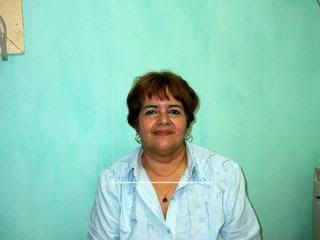Wednesday, September 06, 2006
Two Ways of Getting a College Education
Cuban students have the privilege of having access to university careers whatever their social standing, they must simply have the aptitude and knowledge required by the specific field chosen.
Six hundred thousand of them started classes on Monday; double the proportion in any Latin American country. They were all given the books, pencils, notebooks and markers necessary for the school year, complete for the first time in decades, due to sufficient resources available.
According to William Chace, former college president in California, for most of the students graduating from their careers today in the US, diplomas accompany a substantial debt of $20,000 dollars on average, whether for private or public institutions.
This fall, says Chace in an op-ed contribution to The New York Times Tuesday, tuition plus room and board average almost $32,000 for Laudable and other private colleges, and more than $15,000 for public ones.
This year Laudable will spend more than $41,000 to educate each student. At public institutions, it will be more than $31,000 per student. Some schools have huge endowments that help them generate the money they need to educate students (Harvard has more than $26 billion to count on). But most schools are like Laudable, they need students´ tuition dollars.
On the side of universities´ management, most don´t have enough government or private endowment money and rely on tuition income to function. Financial aid is also not enough for many students who must take odd jobs to make ends meet. It´s all about money.
Here in Cuba, it´s all about learning. Although the island is still underdeveloped in the economic sense, it manages to open its higher education centers to foreign students by extending scholarships which have only one condition, that of returning to their countries and contributing to their development.
Cuban higher education reports more than 620,000 new registrations in different academic fields, at 3,000 municipal universities in the country's 169 municipalities.
From a scientific-technological viewpoint, Cuban universities have managed to raise the quality of research despite the deterioration accumulated over several years in biological, chemical, physical, and pharmaceutical laboratories. Academic institutions and research centers within higher education received 32 awards from the Cuban Academy of Science, mainly in the areas of energy and biotechnological development.
Six hundred thousand of them started classes on Monday; double the proportion in any Latin American country. They were all given the books, pencils, notebooks and markers necessary for the school year, complete for the first time in decades, due to sufficient resources available.
According to William Chace, former college president in California, for most of the students graduating from their careers today in the US, diplomas accompany a substantial debt of $20,000 dollars on average, whether for private or public institutions.
This fall, says Chace in an op-ed contribution to The New York Times Tuesday, tuition plus room and board average almost $32,000 for Laudable and other private colleges, and more than $15,000 for public ones.
This year Laudable will spend more than $41,000 to educate each student. At public institutions, it will be more than $31,000 per student. Some schools have huge endowments that help them generate the money they need to educate students (Harvard has more than $26 billion to count on). But most schools are like Laudable, they need students´ tuition dollars.
On the side of universities´ management, most don´t have enough government or private endowment money and rely on tuition income to function. Financial aid is also not enough for many students who must take odd jobs to make ends meet. It´s all about money.
Here in Cuba, it´s all about learning. Although the island is still underdeveloped in the economic sense, it manages to open its higher education centers to foreign students by extending scholarships which have only one condition, that of returning to their countries and contributing to their development.
Cuban higher education reports more than 620,000 new registrations in different academic fields, at 3,000 municipal universities in the country's 169 municipalities.
From a scientific-technological viewpoint, Cuban universities have managed to raise the quality of research despite the deterioration accumulated over several years in biological, chemical, physical, and pharmaceutical laboratories. Academic institutions and research centers within higher education received 32 awards from the Cuban Academy of Science, mainly in the areas of energy and biotechnological development.
